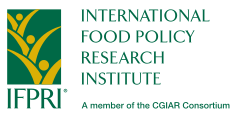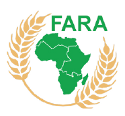The ASTI initiative is managed by the International Food Policy Research Institute (IFPRI) and involves collaborative alliances with many national and regional R&D agencies, as well as international institutions. The initiative, which is funded by the Bill & Melinda Gates Foundation with additional support from IFPRI, is widely recognized as the most authoritative source of information on the support for and structure of agricultural R&D worldwide. ASTI data and associated reports are made freely available for research policy formulation and priority-setting purposes.
The International Food Policy Research Institute (IFPRI®) was established in 1975 to identify and analyze alternative national and international strategies and policies for meeting food needs of the developing world on a sustainable basis, with particular emphasis on low-income countries and on the poorer groups in those countries. While the research effort is geared to the precise objective of contributing to the reduction of hunger and malnutrition, the factors involved are many and wide-ranging, requiring analysis of underlying processes and extending beyond a narrowly defined food sector. The Institute’s research program reflects worldwide collaboration with governments and private and public institutions interested in increasing food production and improving the equity of its distribution.
Research results are disseminated to policymakers, opinion formers, administrators, policy analysts, researchers, and others concerned with national and international food and agricultural policy.
The Forum for Agricultural Research in Africa (FARA) is an umbrella organization bringing together and forming coalitions of major stakeholders in agricultural research and development in Africa. FARA complements the innovative activities of national, international and sub-regional research institutions to deliver more responsive and effective services to its stakeholders. It plays advocacy and coordination roles for agricultural research for development, while the national agricultural research systems (NARS), advanced research institutions (ARIs) and international agricultural research centers (IARCs) develop improved technologies along the research-to-development continuum in their respective countries and coverage areas.
© ASTI/IFPRI/CGIAR 2011-2012


